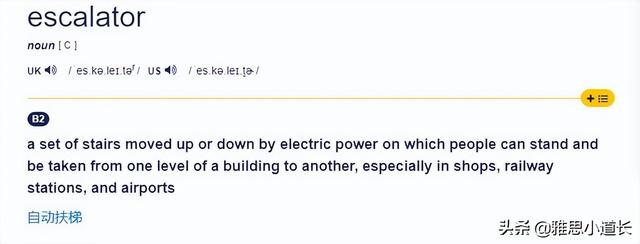Unit6 Topic1重点词组,我来为大家科普一下关于仁爱七年级下册英语topic2知识点?以下内容希望对你有帮助!

仁爱七年级下册英语topic2知识点
Unit6 Topic1
重点词组
Why not… =Why don’t you…
go upstairs上楼 go downstairs下楼
study n.书房 v.学习 与learn的区别
in the front of the house
在屋子(里面的)前面
in front of the house
在屋子(外面的)前面
talk about n/v-ing谈论,议论,讨论某事
talk with sb. 与某人交谈
put them away 把他们收拾好
Look after = take care of照顾
play with sb. “与某人一起玩”
in the tree(外物附着)在树上
on the tree 树本身长出来的花,树叶等
on the wall在墙上
in the wall 在墙里
on the river浮在水面上
over the river 在河上(悬空)
Tell sb about sth
Tell sb to do sth
Tell sb sth= tell sth. to sb.
want sb to do sth/want to do sth
There be…用法
重点语法
There be 句型表示“某处存在某物或某人,表示一种客观存在,
而have“有”,表示“某人拥有某物/某人”表主观拥有,其主语是人。
There is a dog in the picture. The dog has two big eyes.
当have表示“包括”、“存在”的含义时,There be 句型与其可互换。
eg. A week has seven days. =There are seven days in a week.
肯定句:There is a computer in your study.
否定句--在“be”后加“not”: There isn’t a computer in your study.
一般疑问句--将“be”提到“there”之前: Is there a computer in your study?
----Yes, there is./ No, there isn’t.
特殊疑问句:There be句型的特殊疑问句形式有以下三种变化:
① 对主语提问:当主语是人时,用"Who's 介词短语?";
当主语是物时,用"What's 介词短语?"。
注:无论原句的主语是单数还是复数,对之提问时一般都用is(回答时却要根据实际情况来决定)。如: There are many things over there. →What's over there?
There is a little girl in the room. →Who is in the room?
② 对地点状语提问:提问地点用"Where is / are 主语?"
“There be 主语 地点状语”表示“某处有某物”;
例: There is a computer on the desk. → Where is the computer?
There are four children on the playground. →Where are the four children?
地点状语也可放在句首,有时可用“,”与后面的部分隔开。
There are some pictures on the wall.=On the wall, there are some pictures.
③ 对数量提问:一般有两种句型结构:
How many 复数名词 are there 介词短语?
How much 不可数名词 is there 介词短语?
there be 遵循就近原则。There be如果后面接两个名词作主语,那么“be”的人称和数与邻 近的名词一致。即be 用is还是are,取决于离该动词最近的那个名词。如果该名词是单数或不可数名词就用is,如果是复数就用are。
★就近原则: There is a lamp , a computer, some books and so on.
There are two boys and a girl under the tree.
重点句型 There are two bedrooms and a a small study.
There is a lamp, a computer, some books and so on.
—Is there a computer in your study? —Yes, there is.
Don't put them here. Put them away.
There are many beautiful flowers in the garden,
but there aren’t any trees in it. 花园里有许多漂亮的花,但是却没有树。
重点讲解
1.It’s on the second floor. 在哪一层楼,用介词on。on表示在……上面。second是序数词,
前面要用定冠词the, 意为第二(的)。
on the first floor美式英语一楼floor地板,此处指“楼房的层”。
英式英语用the ground floor 表示一楼
巧辩异同 two与second
two是基数词,second是序数词,“第二”或“第二的”,指排列顺序。
2. have a look看看。后面接名词时要用at. 如have a look at your watch.
3. put away 把……放好
Don’t put them here. Put them away.别把它们放在这儿,请收起来放好。
4. look after“保管,照顾”,相当于take care of.‘’
look at看…… look like看起来像…… look for寻找 look the same看起来一样
You must look after your things.你必须保管好你的东西。
5. like to do sth 和 like doing sth的区别 二者都表示"喜欢做某事",
A. like doing sth表示长时间的喜欢做某事,指兴趣爱好。
在意义上比较一般和抽象,时间观念不强,不指某一次动作;
例: She likes swimming.她喜欢游泳。(经常性的,爱好)
I like eating fish .(我喜欢吃鱼,个人口味而已,一种爱好,喜欢)
I love playing on the computer in the study. 我喜欢在书房玩电脑。
(love doing sth.=like doing sth. 喜欢做某事)
B. like to do sth 则常指某个具体的动作,表示偶尔一次喜欢做某事、或者突然喜欢干某事。
与love to do相似
C. like to do sth 想去做某事(表示有个趋向性,好像是要到某处去做某事)
如: She likes to swim this afternoon.她今天下午想游泳。(特指某一次的动作)
另外,在搭配(使用方法)上,“ like to do ”一般与 “ would ” 搭配表示意愿。
例: I would like to swim with you . 我愿意和你去游泳。
Would you like to skate ? 你愿意去滑冰吗?
6. get a letter from sb. 收到某人的来信
I’m very glad to get a letter from you.我很高兴收到你的来信。
6. Welcome to my new home.【home作n.】 (对比Welcome home【home作adv.】)
8. so/too many 可数名词复数=many eg: There are so many books in the desk.
so/too much 不可数名词 =much There is so much water in the river.
9. 方位短语:in the center of=in the middle of在...中间
in front of 在...前面(外部)in the front of(内部)在...前面
at the back of 在...后面
on the left/right of在...的左边/右边
next to 紧邻
10. go up”沿着“指往北走,或从小地方往大地方走
go down往南走,从大地方向小地方去
go along “沿着...往前一直走”
go across 越过、穿过、横穿(go across the bridge)
11. a ticket for n/ving eg: a ticket for parking.
12.肯定的祈使句:(1) 实义动词原形 其他; (2) be动词原形 形容词 其他; (3) Let sb do sth.
否定的祈使句:(1) Don’t 实义动词 原形;(2) Don’t be 形容词 其他;
(3) Don’t let sb do sth (4) No Ving.
练:(1) My mother said to me, “Tom, _______ in bed.”
A. not read B. doesn’t read C. don’t read D. didn’t read
(2) Don’t __________ (fight). = No __________ (fight).
13. 不要迟到: Don’t be late.
上课/上学不要迟到:Don’t be late for class/school.
,




